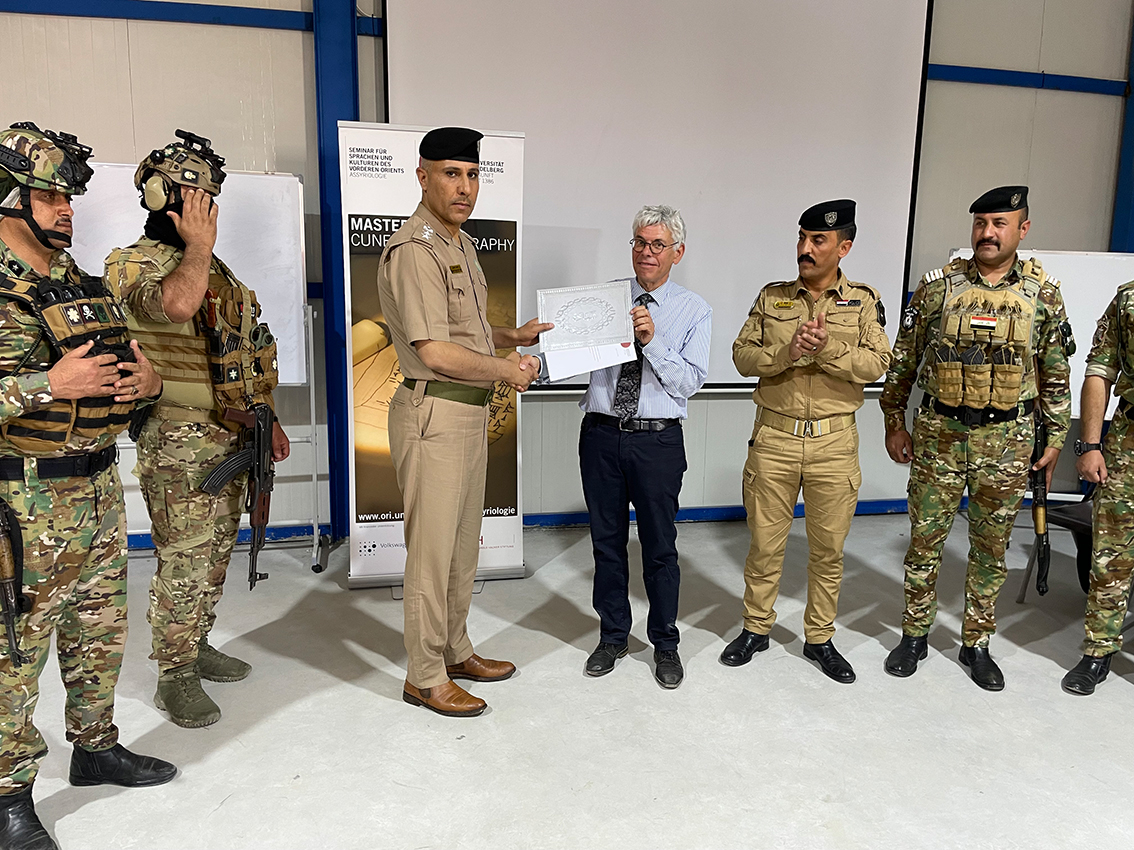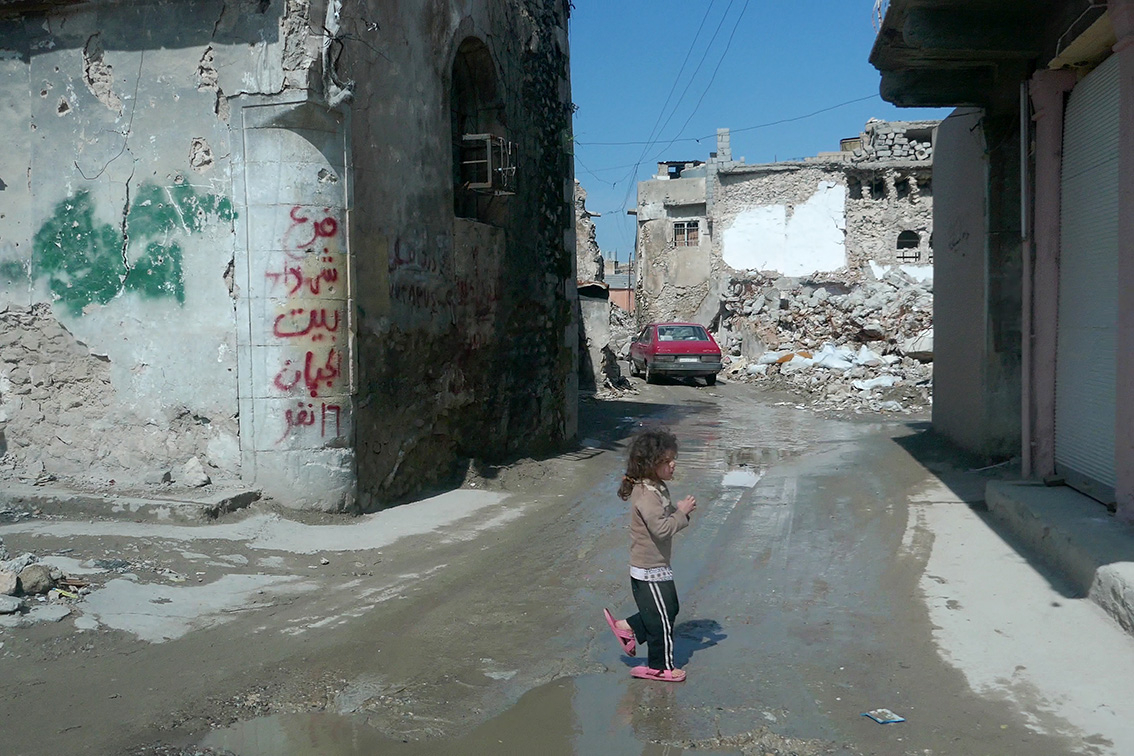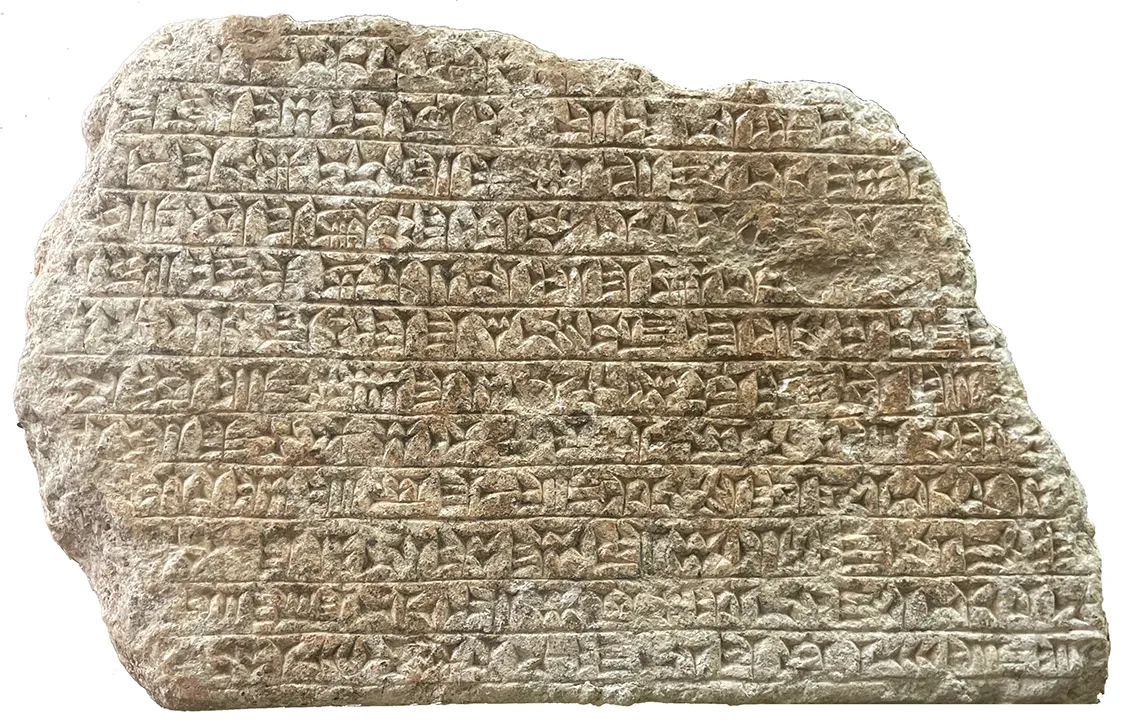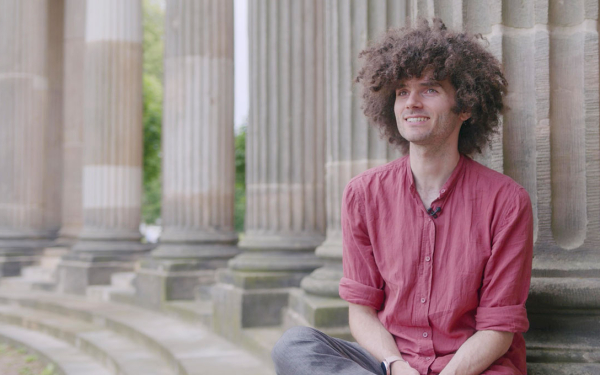
Stefan Maul
He came to Mosul with the task of excavating ancient Nineveh. In the meantime, however, the mission of the ancient orientalist Stefan Maul goes far beyond this: he is rebuilding the study of antiquity in Iraq. And he is teaching the people what the Islamists robbed them of: pride in their cultural heritage.
Ancient orientalists live dangerously. At least when, like Stefan Maul, they are not only researching at their home university in cosy Heidelberg, but also in Mosul, the second largest city in Iraq, where a large number of hostile militias are fighting each other. A city that has suffered under the reign of terror of the Islamic State (IS) and was completely destroyed when it was liberated in 2017.
Dream job full of risks
In his own words, when he came to Mosul in 2019, Stefan Maul, born in 1958, felt transported to 1945 Berlin, that pile of ruins at the end of the Second World War. He had received a prestigious commission from the Iraqi government, a once-in-a-lifetime opportunity for an expert in ancient Near Eastern studies: under his direction, excavations were to resume in ancient Nineveh, the capital of the Assyrian Empire. Mesopotamia. The land between the two rivers, Euphrates and Tigris. The first advanced civilisation of humankind. Ancient Orient.
Sounds like something out of a fairy tale, but it wasn't. Stefan Maul and his team moved into a remote war-scared ruin that first had to be made into the excavation house of the Heidelberg Nineveh Expedition. It is now a playground for archaeologists and students of archaeology from around the world. The education and training programmes that were developed under Maul's leadership take place here. A fortress with walls, barbed wire, video cameras and very strict security personnel. Mosul's reconstruction may be gaining momentum, fortunately for the people. But the area is far from being pacified. The occupants of the excavation house are not allowed to go far from the compound after work. When Maul has to pay a visit to the authorities in the city, he is accompanied by bodyguards with Kalashnikovs.

Soldiers protect the excavation team around the clock. Stefan Maul thanks the commander with a certificate.
No, not a fairytale place. But thanks to the commitment of Maul and his colleagues, the excavation centre has provided an impetus that is making a significant contribution to the resurgence of ancient Near Eastern studies in a place where it had almost disappeared: in Iraq itself. Where, after many, many years of war and terror, ancient Near Eastern research had, unsurprisingly, come to a standstill. Things have now changed. Classical studies are being taught again at the University of Mosul. The Iraqi Antiquities Service has a branch in the city. And the Museum of Antiquities in Mosul, which was looted and completely destroyed by IS, is due to reopen in a few years' time.
Stefan Maul is actively engaged in many of these activities: 'From the very beginning, promoting ancient oriental studies in Iraq has been an undertaking close to our hearts,' says Maul, 'alongside our research in Nineveh.' However, the enthusiasm with which the Germans began teaching the next generation in Iraq skills such as deciphering original cuneiform scripts in 2019 was initially dampened. The prior knowledge of the young Iraqis was clearly inferior to that of other students from all over the world.
Assyrian-Babylonian grammar
'We responded to this experience,' says Maul. The Ancient Orient Research Laboratory offered in Heidelberg is now also taking place in a modified form in Mosul, where participants from Iraq complete intensive training during the excavation-free period in spring and winter: for four weeks, from Thursday to Sunday, from 8 a.m. to 1 p.m. – Assyrian-Babylonian grammar, cuneiform writing, Ancient Near Eastern history. 'In the "master's class", Iraqi students also gain their very first experience in handling cuneiform originals as part of their training,' says Maul. 'They learn about their deciphering and illustrated documents. You can study as many textbooks as you like – these skills can only be developed by handling the originals.'

Mosul has long been liberated, but not pacified: Competing militias are hindering reconstruction.
With fragments, clay tablets and brick inscriptions, the excavation in Nineveh provides plenty of practice material. The remedial course prepares the "master's class" participants for the four-week 'research laboratory.' A training programme for which young academics from all over the world are now applying to Maul.
Ten participants are planned for each event. So far, 90 female and male students from 28 nations have taken part. The gender ratio is balanced, with a fluctuation margin of ten per cent. Under supervision, the groups work on the edition of a small corpus of unpublished cuneiform texts. Maul also co-opts specialist scholars from the international community. The programme is rounded off with lectures, seminars, excursions, and museum visits.
Although the start in 2019 may have been a little bumpy, Maul can now proudly claim: 'We teach ancient Near Eastern studies and cuneiform epigraphy at the highest scientific level.' Our partners on the Iraqi side see it the same way. For example, Maul is now also being asked to train employees of the Iraqi Department of Antiquities. Even the Dean of the Faculty of Classics at the University of Mosul is among the graduates of a master's class. 'In the meantime, I have also received a request to open our teaching programme to students from the University of Baghdad,' says Maul.

Archaeologists from all over the world live and study in the excavation house. It is their safe refuge in a high-risk environment.
The effects of Maul's commitment have also been felt in Heidelberg, 3,000 kilometres away from the Nineveh Tomb as the crow flies. In February 2024, the university in the city on the Neckar signed a cooperation agreement with its counterpart in Mosul. The agreement provides for intensified cooperation in teaching – and that the 'Ancient Orient Research Laboratory' qualification programme will no longer only take place in Heidelberg, but also by 2027 in Iraq.
Long partnership sealed
2027 is also the year in which the Volkswagen Foundation's funding of the project ends in its now completed funding initiative 'World Knowledge - Structural Support for Rare Subjects' . What impact does Stefan Maul hope to have achieved by then? 'With our teaching concepts, we have substantially advanced the new beginning of Ancient Near Eastern Studies in Iraq,' says Maul. 'The teaching cooperation agreement between Heidelberg and Mosul gives the programme stability and sustainability. Once the funding comes to an end, it is guaranteed that our teaching units will be continued in the curriculum of the Faculty of Classical Studies at the University of Mosul – and with specialists we have previously trained here at the excavation centre and in Heidelberg!'

Stone slab with a cuneiform inscription from the time of King Sanherib, 7th century BCE
Heretical question: Are assyriologists what war-torn Iraq really needs to get back on its feet? This is obviously not the first time Maul has heard this question, and he explains: 'In Germany, Assyriology is often treated as an exotic subject. In Iraq, the perspective is completely different. The population consists of many ethnic and religious minorities who are at odds with each other. However, there is an identity-forming narrative that most people can agree on: the heritage of Mesopotamia. It fills everyone with pride that the first advanced civilisation of mankind originated in what is now Iraq.' Stefan Maul can also be proud of what he has achieved in Mosul: lifting the region's millennia-old history out of the rubble and bringing it back to life in people's minds. Can an archaeologist wish for more?


